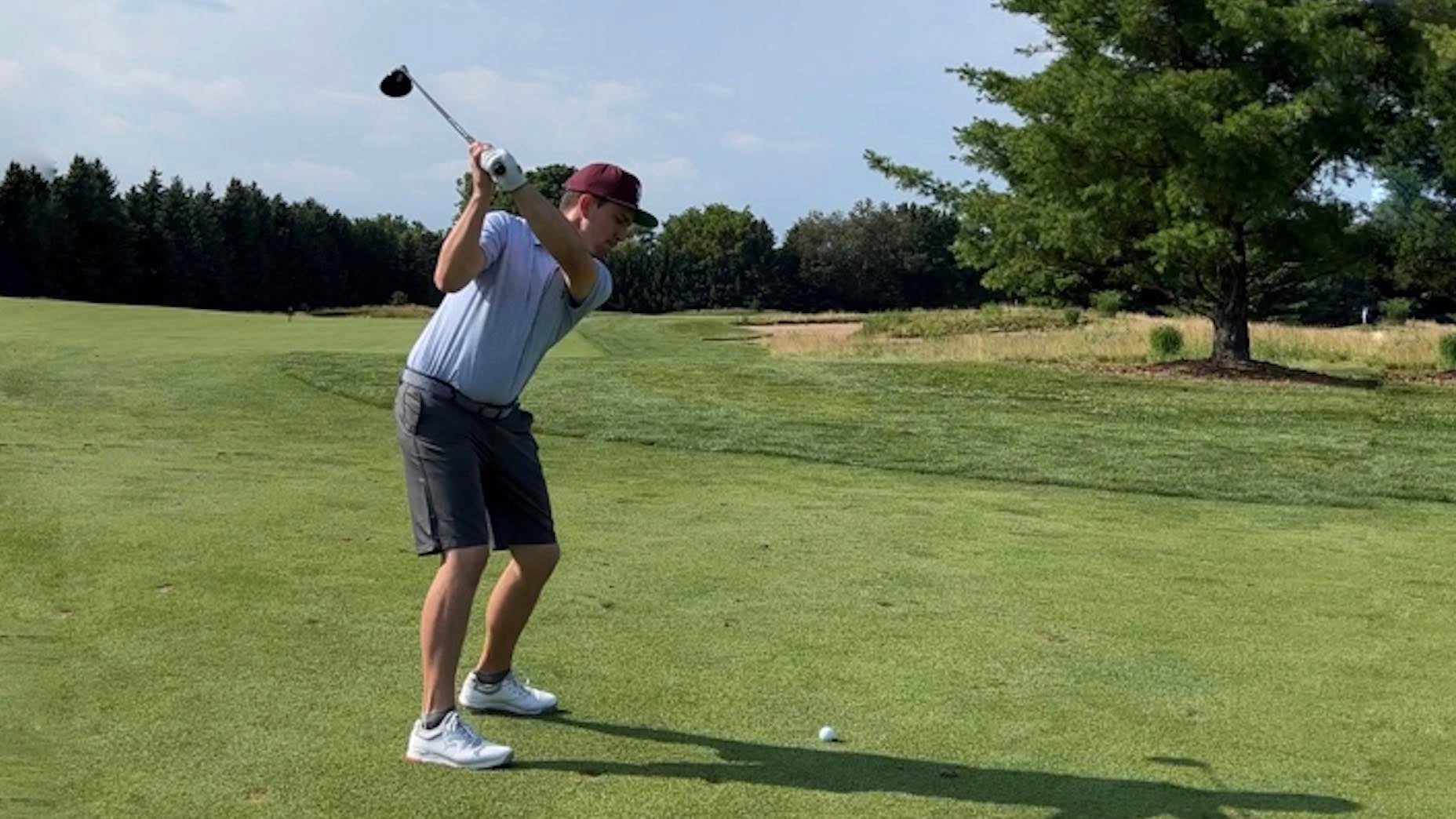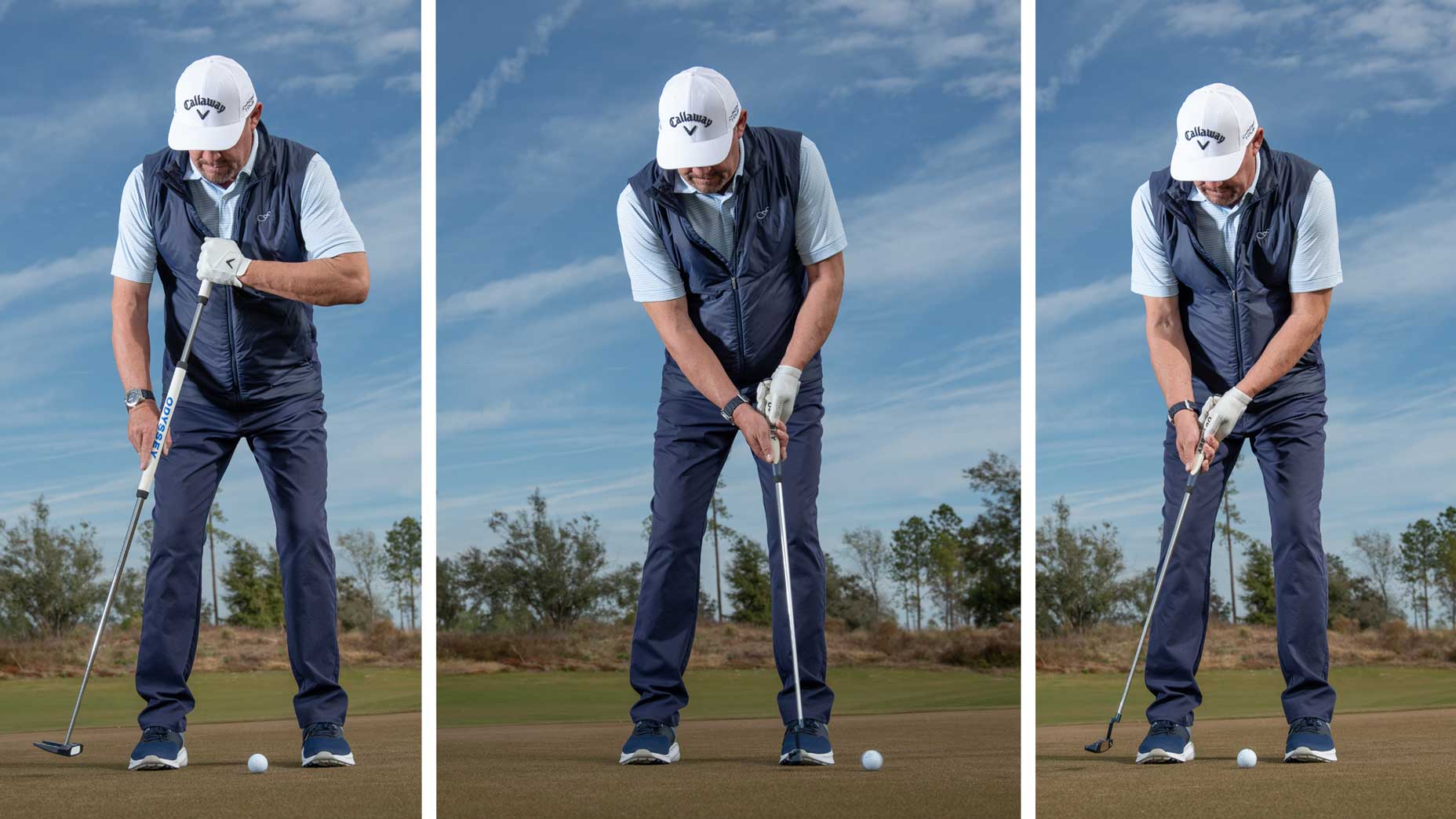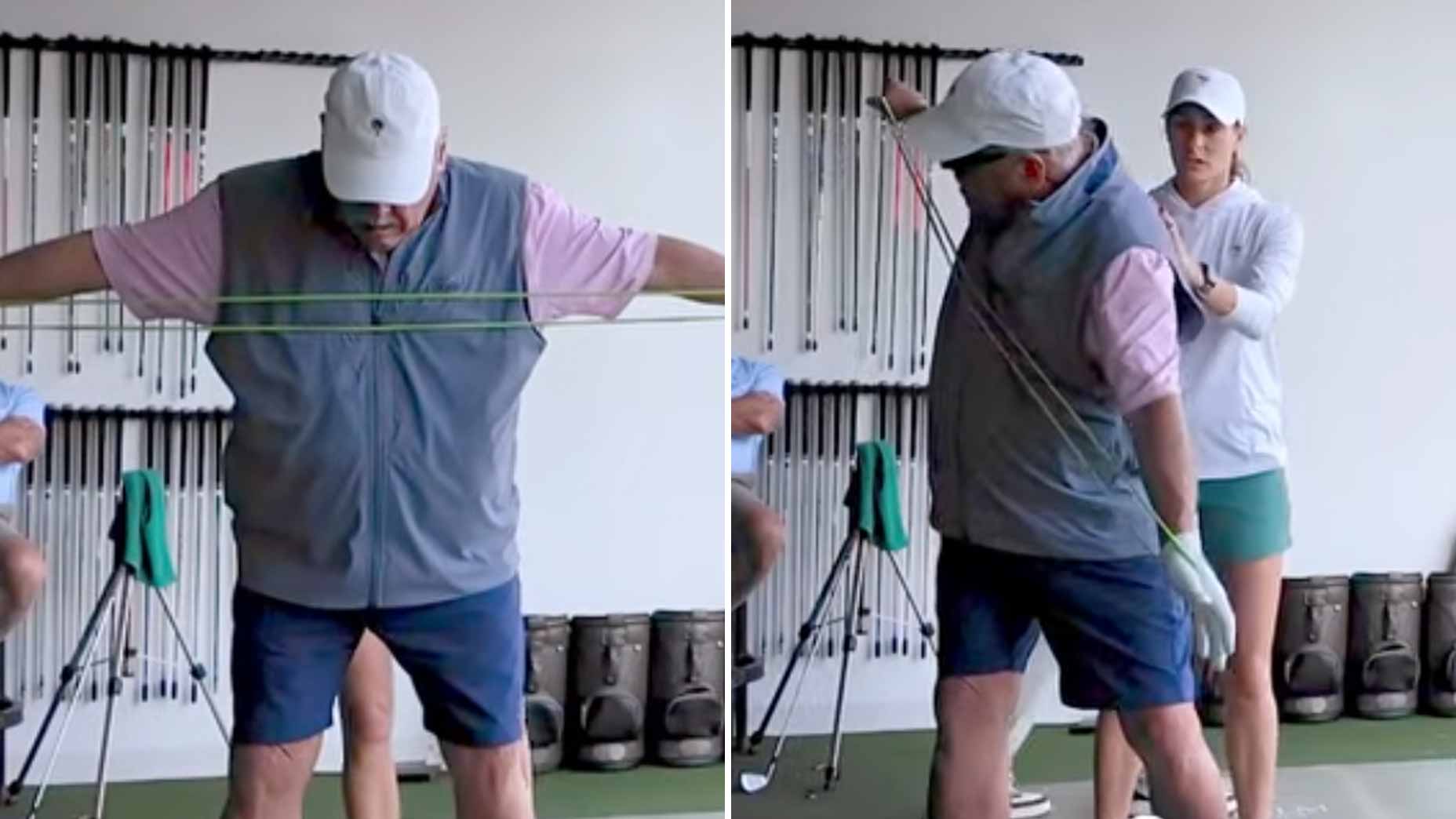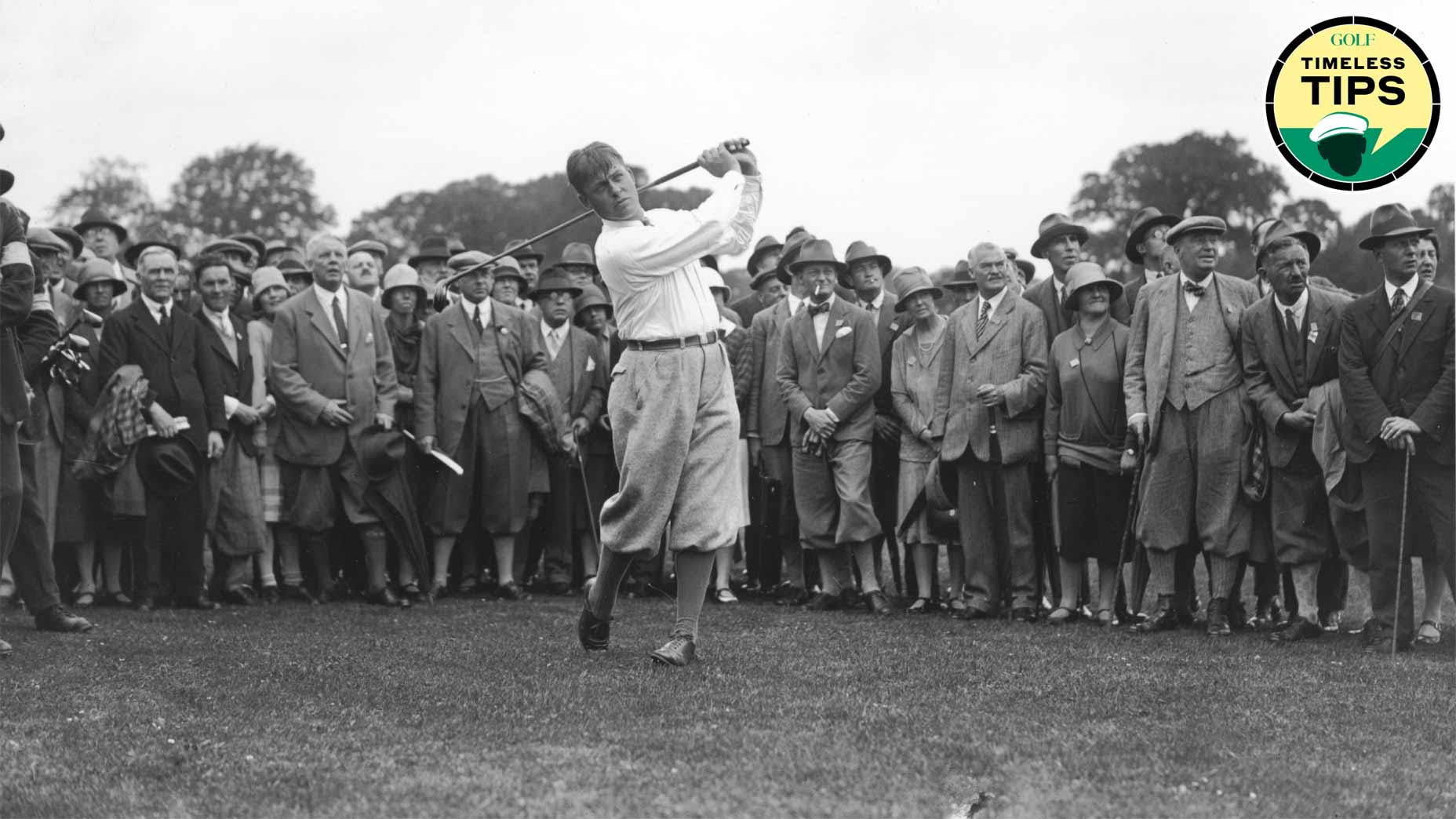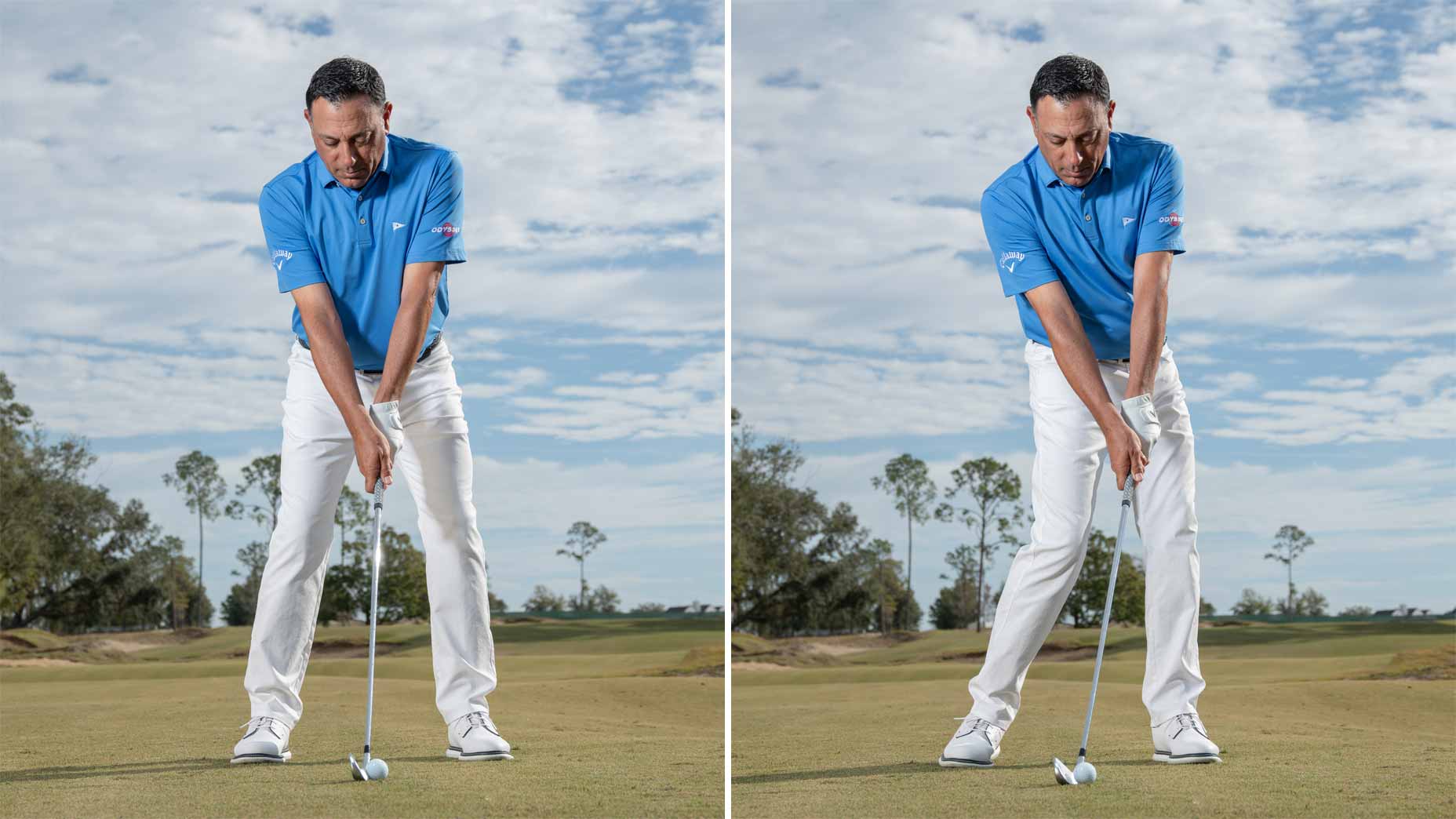A common misconception of people in the golf business is that everyone is playing golf all the time — but I’m sad to report that it’s just not true. Like anyone else with a job and other obligations, hobbies like golf take a back seat to life, and with less time it becomes more difficult to improve — but that doesn’t mean you can’t.
As one of the equipment editors here at GOLF.com, I can attest that I don’t play as much golf as I would like, but I still get in my fair share of rounds, and when I do play golf it’s my goal to play the best I can.
To be clear, I do not bring my clubs on the road when I am covering the PGA Tour, and I certainly don’t hunt down the nearest driving range or Topgolf to get a quick practice session in. Instead, you’re more likely to find me at a local pizza joint after a day on the course, checking emails and editing photos.
So with all of this in mind, I’m happy to report that at an age that is closer to 40 than 30, and with a couple of little kids under the age of 8, I am playing some of the best golf I ever have and doing it with less practice than ever — so let me tell you how I’m doing it.
Step 1 – Understand strengths
Great coaches will always tell you that if you want to be better it’s important to keep your strengths your strengths, and thanks to playing a lot of golf as a junior, my short game is fairly well-rounded.

Is it perfect? No, but it saves me a lot of shots when I need it to, and when I combine that with my putting, it’s a highlight of my game. With this information, I make sure to take my time hitting a few putts before every round and to make sure to hit a few lag putts too.
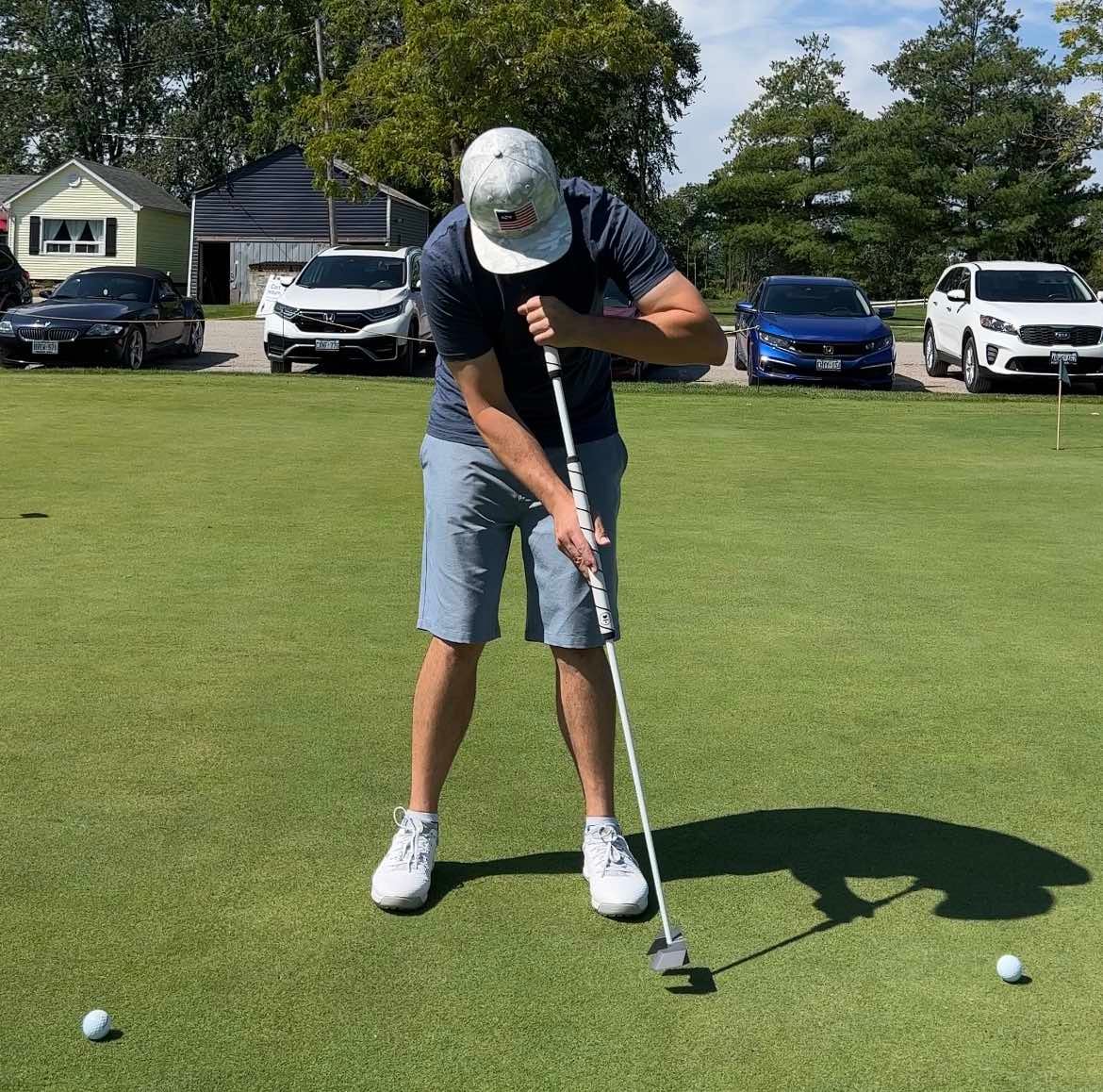
Playing good golf is less about making small numbers and more about reducing big ones, so every up and down and avoided three putt is a huge win.
The lesson: By playing to your strengths, you put less stress on the weaker parts of your game, and over the course of 18 holes you will lower your scores.
Step 2 – Understand weaknesses
No matter what, you’re going to have a weaker part of your game. Heck, even World No. 1 Scottie Scheffler (who has had an out-of-this-world year of ball striking) has had struggles with the putter, and I shall remind you again — he’s number the number one player in the world.
‘This club has changed my game’: Why a 9-wood could be the answer to lower scoresBy: Ryan Barath
For myself, I’m not even close to being the best player at my local course, and my weakness is hitting greens, more specifically on par-3s. Once I understood that this was an issue in my game (and it still is), I decided to make a change to my equipment setup by removing a long iron and carrying a 9-wood. On top of that, I also make a very conscious effort to make better decisions about my targets so if I do miss, I give myself the opportunity to recover.
Once I decided to actively address my weakness in the easiest way possible by avoiding trouble on the holes I find it most often, I instantly made the worst part of my game up to just below average for my handicap, and that alone has helped a tremendous amount.
The lesson: It’s okay to have a weak part of your game, but once you have an understanding of what it is, you can use it as an opportunity to make small changes to reduce big numbers.
Step 3 – Manage expectations
For most golfers, this is the hardest thing to do, because whether we choose to admit it or not, it involves ego and managing ego versus reality is hard — even for professionals.
The single best way to make better decisions on the course is to utilize data, and whether you use a shot tracking app like Arccos or Game Golf, having more information helps with steps 1 & 2, knowing what you’re good at, and what you need to work on.
When used correctly, the right information allows you to pick better targets, pick the right club and help you avoid trouble, no matter where you play your golf.
One of the things golfers struggle with the most is club selection into greens and avoiding trouble off the tee. Penalty strokes add up quickly and can ruin a round, so by knowing how to make better decisions you can once again avoid big numbers and create more consistency.
On a personal level, being smarter on every hole has helped me create a game plan for executing the shots I know I can hit, and being able to bring that confidence to every shot has added up.
The lesson: Take a step back and evaluate your game as honestly as you can (use stats to your advantage). By doing so you create the opportunity to learn and bring better choices to every round of golf.
Step 4 – Focus on what works
Similar to managing expectations, having the right equipment is absolutely critical to playing your best golf.
By bringing the tools you are most confident with to the course every time you play, you are already creating an advantage before you even tee off, and this doesn’t stop at just clubs. Wear your most comfortable shoes, wear the right socks, have your preferred golf balls and wear a shirt that fits and feels just right for you.

The Premier Club Fitting Experience
Decisions like this might seem simple, but it’s often the most simple things that can make the biggest difference. By not being forced to think about factors that could be a negative to your game, you can focus on what matters the most — your next swing.
And speaking of clubs, I can’t stress how important getting fit for the right clubs really is.
The lesson: Remove anything from your round that can take away from the opportunity to perform your best, and bring everything you can that will help you play better. Eliminating even the smallest distractions and variables will add up.
Step 5 – Live by the process
Golf is a game that we can play for a lifetime, so with that in mind, it’s extremely important to separate short and long-term goals and understand that setbacks in the short term can lead to long-term success.
Just because a game plan didn’t work for one round of golf does not mean it won’t work for the next, and failures should be taken as an opportunity to evaluate and not as an excuse to abandon the process.
For me, one of the biggest undertakings I have ever done to my golf game is commit to speed training, and over the last 18 months, I have seen huge improvements in my club head speed and on-course distance. During this process, there have been times when I have struggled with my irons and had big issues with driving accuracy, but long-term data has proven that gaining distance is a huge factor in lowering scores across all handicap levels and I never strayed from my end goal.
Even on days when I felt it wasn’t going well, I stayed committed even when it led to short-term failure. Thanks to this commitment, driving the golf ball is one of my biggest strengths, and it has had a trickle-down effect on the rest of my game.
The lesson: As much as we want everything to work perfectly every time, it won’t — but that doesn’t mean you should give up on the process. Sticking to a proven plan whether self-built or developed with the help of a coach, will help create long-term success, and over time that success in golf will help you play to your highest potential.
Want to overhaul your bag for 2023? Find a fitting location near you at True Spec Golf.
